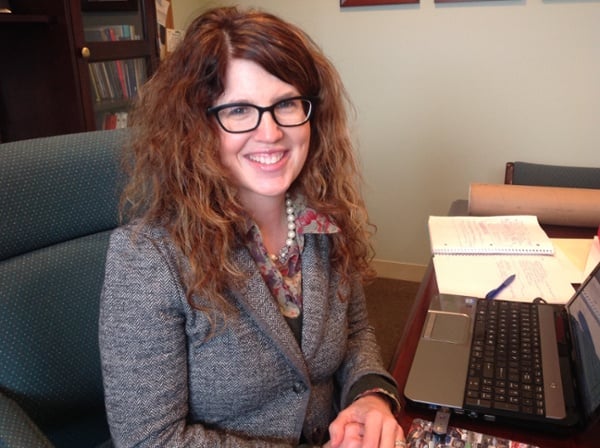 A new study conducted by the Center for Retirement Research at Boston College shows that senior citizens are one of the most preyed upon users of the internet. Scammers are known to routinely advertise in an effort to fleece older investors. This type of financial fraud can happen over the web, through unscrupulous advertising on the television and in the newspapers, from illegal charity outfits and right within the home.
A new study conducted by the Center for Retirement Research at Boston College shows that senior citizens are one of the most preyed upon users of the internet. Scammers are known to routinely advertise in an effort to fleece older investors. This type of financial fraud can happen over the web, through unscrupulous advertising on the television and in the newspapers, from illegal charity outfits and right within the home.
It’s an abuse that’s difficult to prove, especially if elders are unaware of what is happening and the perpetrator is a trusted family member or friend. However, seniors can avoid these scams if they are educated on the issues, know what the red flags are and know how to protect themselves.
Share Information about Popular Scams
Caregivers can share information with seniors about popular scam websites to avoid, unethical telemarketers to be wary of and financial swindlers who target retirement communities. Caution loved ones about giving out personal information, such as social security number, bank account number, driver’s license number, etc.
Seniors who utilize the services of in-home care staff may need more monitoring to ensure they are not taken advantage of. In-home senior care is a booming business but not all agencies are on the up-and-up. It is critical if your aging loved one has in-home care that you make sure background checks are conducted, and that qualifications and quality standards of operations are of the highest standards.
Red Flags to Watch Out For
There are never enough vigilant eyes to warn seniors of scams. If possible, seniors should stay away from these red flags:
- Any marketing campaign demanding action on a sale immediately as with: “limited time offers.”
- Any debt-settlement agency claiming authority to clear-off your debt.
- Anything that comes with the lure of a free gift, trip or meal.
In addition, family members can be on the alert for unusual behavior exhibited by loved ones, like these:
- Expressing concern for “lost” valuables or missing cash.
- Inability to explain a series of purchases.
- Exclamations of woes over unanticipated financial losses.
- Handing over financial control to a wayward adult children, new caregivers, friends or neighbors.
How to Protect Seniors from Financial Rascals
Protecting seniors from “gold diggers” lurking in every corner is the responsibility of family members and their community as a whole. For caregivers, these tips may help to lower the incidence of theft:
- Keep your visits regular and evaluate how things are going with your loved one. If you can’t be there often, enlist the help of another family member or a trusted care manager. A professional assessment will help determine when it’s necessary to step-in and manage your mom or dad’s finances.
- Share a code phrase with your mom or dad that will deter criminals; the phrase could be: “I’ll need to run that by my advisor, first,” used whenever mom feels pressured to purchase an item.
- Set up a regular review system to help monitor your loved ones’ funds or if necessary, designate a trusted family member or legal professional to assume power of attorney for full time protection.
- Elder financial fraud can happen over the web, through unscrupulous advertising strategies, from illegal charity outfits and right within the home.
- Seniors can avoid scams if they are educated on the issues, know what the red flags are and know how to protect themselves.
- Caution loved ones about giving out personal information, such as social security number, bank account number, driver’s license number, etc.
- Share a code phrase with your mom or dad to deter criminals; the phrase could be: “I’ll need to run that by my advisor, first,” whenever there is pressure to purchase an item.
- Keep your visits regular and evaluate how things are going with your loved one. If necessary, a trusted family member or legal professional can assume power of attorney for full time protection of finances.
Key Takeaways:
- Elder financial fraud can happen over the web, through unscrupulous advertising strategies, from illegal charity outfits and right within the home.
- Seniors can avoid scams if they are educated on the issues, know what the red flags are and know how to protect themselves.
- Caution loved ones about giving out personal information, such as social security number, bank account number, driver’s license number, etc.
- Share a code phrase with your mom or dad to deter criminals; the phrase could be: “I’ll need to run that by my advisor, first,” whenever there is pressure to purchase an item.
- Keep your visits regular and evaluate how things are going with your loved one. If necessary, a trusted family member or legal professional can assume power of attorney for full time protection of finances.





 A new study conducted by the Center for Retirement Research at Boston College shows that senior citizens are one of the most preyed upon users of the internet. Scammers are known to routinely advertise in an effort to fleece older investors. This type of financial fraud can happen over the web, through unscrupulous advertising on the television and in the newspapers, from illegal charity outfits and right within the home.
A new study conducted by the Center for Retirement Research at Boston College shows that senior citizens are one of the most preyed upon users of the internet. Scammers are known to routinely advertise in an effort to fleece older investors. This type of financial fraud can happen over the web, through unscrupulous advertising on the television and in the newspapers, from illegal charity outfits and right within the home.